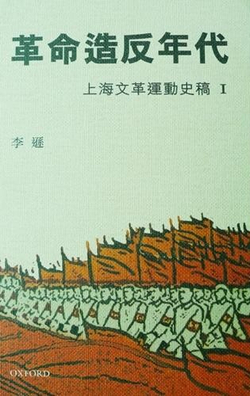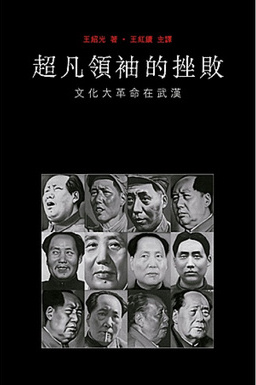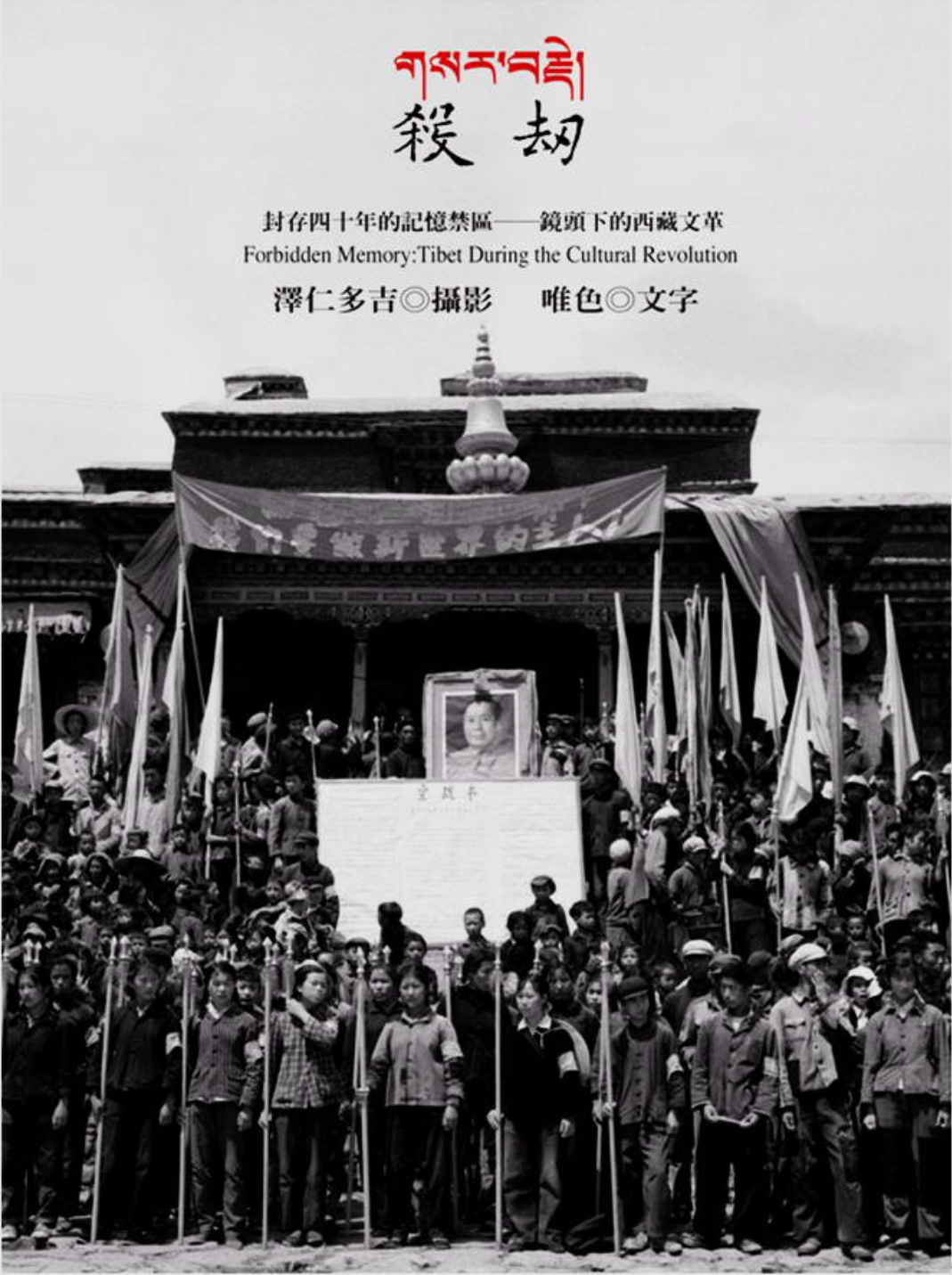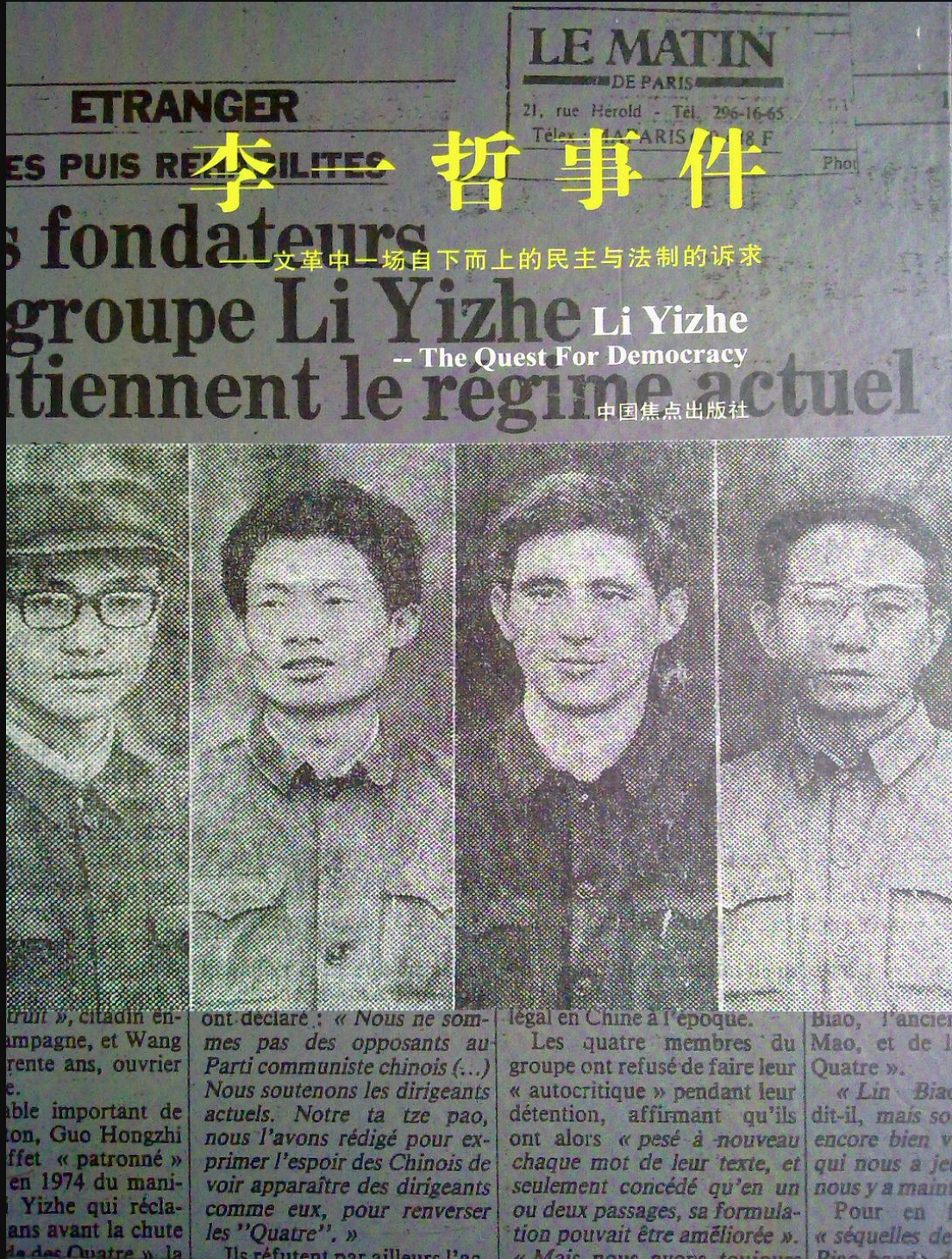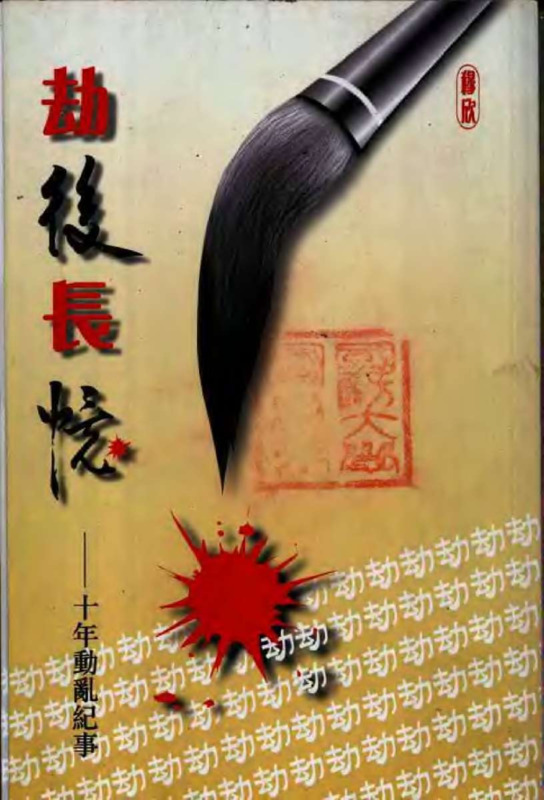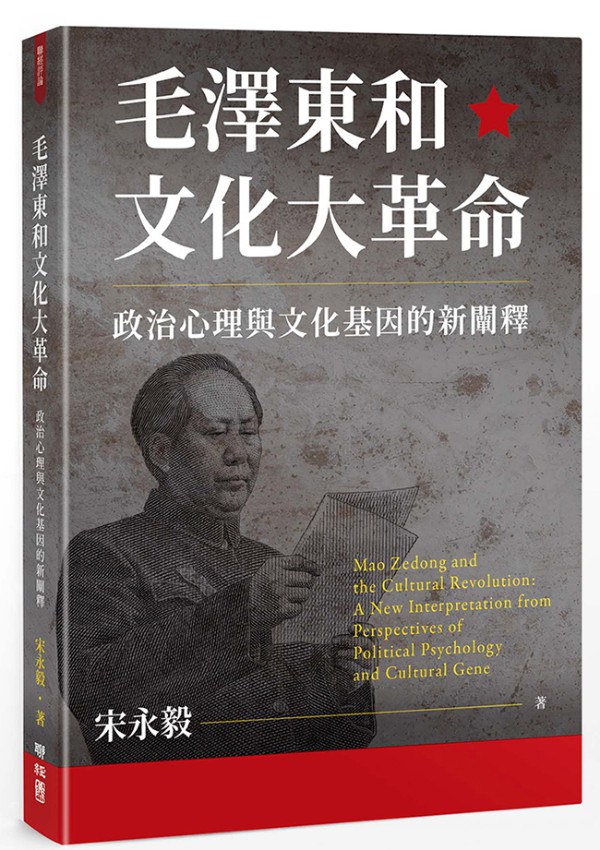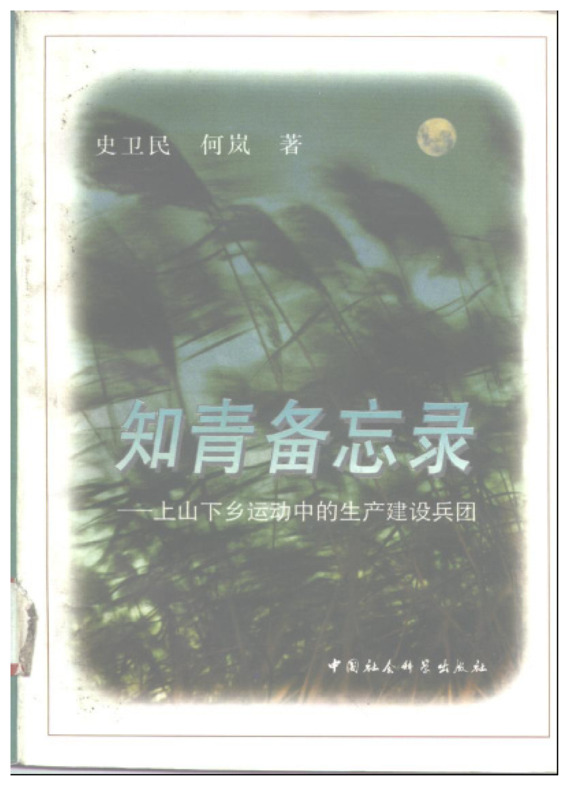Explore the collection
Showing 45 items in the collection
45 items
Book
Age of Revolutionary Revolt: Historical Manuscripts of the Cultural Revolution Movement in Shanghai, The
Shanghai is where the Cultural Revolution was launched, and the Shanghai Cultural Revolution is an important part of China's decade-long Cultural Revolution. This book is an important work about the decade-long Cultural Revolution in Shanghai. It has been commented that "Li Xun's book is the most detailed account of the Shanghai Cultural Revolution to date. Although other perspectives are possible, as far as political history is concerned, the basic framework is complete; and as far as the study and evaluation of the Cultural Revolution is concerned, the core of understanding the movement is almost lost without the Shanghai Cultural Revolution." This book was published by Oxford Press in 2015.
Here is a link to purchase the book from the publisher:
https://www.oupchina.com.hk/zh/general-interest/humanities/archives/2014/24_shanghai-cult-revolution
Book
At the Crossroads of History
This book is Gao Hua's next masterpiece after *How the Red Sun Rose*. It entails a selection of papers published by the author between 1988 and 2004, covering the fields of Republican history, Communist Party history, and contemporary Chinese history. It captures the historical interaction between the present and the past. Gao reflects deeply on the far-reaching Chinese Communist Revolution. With a rigorous and empirical research methodology, he sketches a complex and colorful picture of history, presenting the multiple facets of twentieth-century China's history.
Book
China's "Left Scourge"
The author of this book, Lu Jianhua (pen name Wen Lu), was a former member of the Chinese Academy of Social Sciences who published this book in 1993. He was sentenced to 20 years in prison in 2005 for "allegedly leaking state secrets" in connection with the "espionage case" involving journalist Cheng Xiang.
Book
Defeat of an Extraordinary Leader: The Cultural Revolution in Wuhan, The
This book covers the history of the Cultural Revolution in Wuhan and related analysis. Wang Shaoguang completed his doctoral dissertation of the same name (in English) in 1989, and the Chinese version of his abridged dissertation, *Rationality and Madness: The Masses in the Cultural Revolution,* was published by Oxford University Press in 1993. a Chinese version was published by The Chinese University of Hong Kong Press in 2009. Taking the Cultural Revolution in Wuhan as the main axis, the author interviewed dozens of participants in the Cultural Revolution, utilizing a large amount of original materials published during the Cultural Revolution. Combining all of this with his own personal experience, he profoundly reveals the masses' participation in the Cultural Revolution during winters, forms and laws, the mechanism of advancement and retreat, and its relationship to the general situation of the whole country.
Film and Video
East Wind State Farm
In 1957, two hundred teachers, students, and cadres from Kunming, Yunnan were among the hundreds of thousands of Chinese people labeled as “Rightists” for criticizing the Chinese Communist Party. They were sent to the East Wind State Farm, located in Mi-le County in Yunnan, for 21 years of “thought reform” in the countryside. These inmates witnessed the policies of the Great Leap Forward first-hand: they took part in deforestation, agricultural, and industrial projects in the countryside, which precipitated the Great Famine. Later, during the Cultural Revolution, their camp was visited by large groups of youths “sent down” from the cities, who worked on the farm with the “Rightists.” In 1978, these “Rightists” were finally rehabilitated and allowed to leave.
This documentary examines the policies and campaigns of the Maoist era through the eyes of those who were persecuted and exiled. Director Hu Jie pieces together this long and complex story through collecting dozens of extensive interviews with inmates as well as staff who served through decades of the camp’s existence. These people’s vivid memories and personal accounts shed light on the harrowing lifestyle of not only the two hundred “Rightists” of East Wind State Farm, but also the scores of dissidents and youths who experienced the Great Leap Forward and the Cultural Revolution.
Book
Fifty Years of the Chinese Communist Party
The author Wang Ming was an early member of the Communist Party of China (CCP) and the first of the "28 and a half Bolsheviks," who lost power after the Yan'an Rectification and were gradually marginalized by Mao. After the Yan'an Rectification, the Internationalists, led by him, lost power in the party. He was gradually ostracized by Mao Zedong, who expatriated him to the Soviet Union in 1956. In his book, Wang Ming recounts his decades-long feud with Mao. It provides a fascinating insight into the early history of the CCP.
Book
First Man against the Cultural Revolution and His Co-Conspirators, The
On August 8, 1966, the Central Committee of the Communist Party of China adopted the "Sixteen Articles" of the Cultural Revolution. Soon after, Liu Wenhui, a young mechanic in Shanghai who had been labeled as a "rightist" in 1957, wrote pamphlets and leaflets clearly opposing the Cultural Revolution, the "Sixteen Articles", and authoritarianism and tyranny. He was arrested on November 26 of that year. Four months later, he was executed for "counter-revolutionary crimes." Liu Wenhui became the first person known to have been publicly shot for opposing the Cultural Revolution. The author of this book, Liu Wenzhong, was Liu Wenhui's co-defendant and survived thirteen years in prison. In this book, Liu Wenzhong describes in detail his brother Liu Wenhui's ideology as well as how he was killed by the tyrannical government.
电影及视频
In Search of Lin Zhao's Soul
Hu Jie narrates the life of Lin Zhao, a Christian dissident who was condemned as a Rightist in the late 1950s and executed during the Cultural Revolution. Prior to becoming a mentcritic of the government, Lin Zhao was an ardent believer of communism. She demonstrated talent in writing and speaking as a star student in Peking University. However, after criticizing the government in 1957 during the Hundred Flowers Campaign, she was cast as anti-revolutionary. Despite the government’s attempts to silence her, Lin Zhao continued to speak and write publicly, including contributing two epic poems to Spark, an underground student-run journal. In 1960, she was arrested, and despite being released briefly in 1962, spent the rest of her life behind bars, under extremely poor living conditions. Nevertheless, she continued to write in prison, sometimes with her blood. In 1968, at the age of 36, she was executed by a firing squad.
In this documentary, Hu Jie showcases many of Lin Zhao’s surviving writings and poetry. These pieces often contain criticisms of the communist regime, as well as commentary on policy issues pertaining to labor and land reform. In making this film, Hu Jie traveled around China to interview friends and associates of Lin Zhao, who knew her as a student, activist, or prisoner. This documentary includes excerpts from interviews with them, which inform us about Lin Zhao’s personality and motivations.
This documentary has contributed to a widespread revival of interest in Lin Zhao, who had almost become a forgotten figure until the film’s appearance.
Book
In the Palm of Buddha (Updated Edition)
Zhang Dongsun is an unavoidable but deliberately obscured figure in modern China. Considered the earliest translator of Western philosophy, a famous newspaperman, political commentator, and professor at Yenching University; the first mediator between the Kuomintang and the Communist Party in 1949, and the first Central People's Government Member. He was convicted of treason in 1951 and disappeared. The well-known writer and journalist Dai Qing completed this historical documentary after eight years of investigation and writing and nearly ten years of revising and updating. Taking Zhang Dongsun's life as the main theme, he wrote about changing times from the late Qing dynasty to the Cultural Revolution.
An expanded edition of this book will be published by the Chinese University of Hong Kong Press in 2022. The following is the link to purchase books from the publisher:
https://cup.cuhk.edu.hk/index.php?route=product/product&product_id=3466
Book
Killing and Hijacking: Tibet's Cultural Revolution Through the Lens
In 1966, when the flames of the Cultural Revolution began to spread, writer Tsering Woeser (唯色) was born in the General Hospital of the Tibetan Military Region. Her father was an officer in the People's Liberation Army (PLA) in Tibet at the time, and an avid photographer. Through his camera lens, the officer recorded the most comprehensive collection of images of the Cultural Revolution in Tibet to date. Tsering Woeser, on the other hand, restores and records the story behind the camera lens: It was an attempt to fight against oppression and preserve the true history of Tibet during the Cultural Revolution.
Book
Li Yizhe Incident - A Bottom-Up Appeal for Democracy and the Rule of Law in the Cultural Revolution
Li Yizhe is the signature of a famous large-print newspaper, “About Socialist Democracy and the Rule of Law,” during the Cultural Revolution in mainland China. The newspaper was co-authored by three people: Li Zhengtian, a student at the Guangzhou Academy of Fine Arts; Chen Yiyang, a high school student; and Wang Xizhe, a factory worker. The name Li Yizhe was created with characters taken from each of the three names.
"Li Yizhe" wrote three drafts from September 13, 1973 to November 7, 1974. On November 10, 1974, the newspaper was publicly posted on the streets of Guangzhou, with a total of sixty-seven sheets of white paper and more than 26,000 words. The content called for socialist democracy and the rule of law, in the form of a critique of the "Lin Biao system." It pointed directly at the shortcomings of the CCP's ultra-leftist movement that had trampled on democracy and the rule of law since the founding of the CCP. The newspaper pointed out that the social and historical conditions under which Lin Biao's group emerged reflected the ideology of China's feudal society, which had lasted for more than 2,000 years, and that the essence of Lin Biao's counter-revolutionary group reflected the ideology of the extreme left. Without naming names, the broadsheet also pointed out the many crimes of those in power and, in connection with these phenomena, analyzed the serious problems of the socialist "system" itself. Li Yizhe and others were arrested in 1977 and rehabilitated a year later.
Book
Life of Storms: The New Life of a Disabled Prisoner, A
On August 8, 1966, the Central Committee of the Communist Party of China adopted the "Sixteen Articles" of the Cultural Revolution. Soon after, Liu Wenhui, a young mechanic in Shanghai who had been labeled as a Rightist in 1957, wrote pamphlets and leaflets clearly opposing the Cultural Revolution, the "Sixteen Articles," authoritarianism, and tyranny. Liu was arrested on November 26 of that year. Four months later, he was executed for "counter-revolutionary crimes." Liu Wenhui became the first person known to have been publicly shot for opposing the Cultural Revolution. The author of this book, Liu Wenzhong, was Liu Wenhui's co-defendant and survived thirteen years in prison. In this autobiography, Liu Wenzhong describes in detail not only Liu Wenhui's ideology but also how he was killed by the tyrannical government.
Book
Long Memories after the Hijacking -- Chronicle of Ten Years of Turmoil
The author of this book, Mu Xin, was an early member of the CPC and served as chief editor of "Guangming Daily" in the 1950s. At the beginning of the Cultural Revolution, he was a member of the Central Committee's Cultural Revolutionary Group. In 1967, he was defeated and imprisoned in the Imperial Prison (Qincheng Prison). This book was published in Hong Kong in 1997. Because of the author's status, this book is helpful for understanding high-level circumstances during the pre-Cultural Revolution and early Cultural Revolution period.
Book
Mao in Power (1949-1976)
The author of this book, Shan Shaojie, is a scholar from mainland China. For several years, he wrote this book from an independent position. Former political secretary of Mao Zedong, Li Rui, and Princeton University professor, Yu Yingshi, wrote the foreword for this book. In addition to a systematic account of the Maoist era, Shan Shaojie's book "Mao in Power" emphasizes that almost all members of the Communist Party's highest decision-making echelons, with the exception of Mao Zedong, made efforts, in varying degrees and successively, to stop Mao's insanity. Moreover, they took turns to resist and ultimately to leave Mao alone, but did not really stop Mao's madness. This book was published by Linking Publishing in 2001 and has been reprinted several times.
Book
Mao Zedong and the Cultural Revolution: an interpretation of political psychology and cultural genes
This book systematically explores the mental world of Mao Zedong, and his followers (including Lin Biao, Jiang Qing, Zhou Enlai, Kang Sheng, and Zhang Chunqiao). According to the author, it involves lust, political fantasies, and other pathologies. The book analyzes how these subconscious thoughts underlay the history of the Cultural Revolution.
Book
Mao: The Unknown Story
This book presents the dramatic life of Mao Zedong, revealing a wealth of unheard-of facts: why Mao joined the Communist Party, how he came to sit at the top of the Chinese Communist Party, and how he seized China step by step. Writers Jung Chang and her husband Jon Halliday took ten years to complete this book, interviewing hundreds of Mao's relatives and friends, Chinese and foreign informants and witnesses who worked and interacted with Mao as well as dignitaries from various countries.
Purchase link:https://www.amazon.com/Mao-Story-Jung-Chang/dp/0679746323.
Book
Memo of the Educated Youth: Production and Construction Corps of the "Down to the Countryside" Movement
During the Cultural Revolution, 14.03 million urban junior and senior high school students said goodbye to their parents and families and left the cities to receive "re-education" in the "wide world." 10.48 million young intellectuals who had been sent to the army or returned to their hometowns were resettled in rural communities and squads. 1.26 million were placed in the newly-formed youth collectives and teams, while another 2.29 million were accepted by state-run farms and production and construction corps. The production and construction corps became the most concentrated place for intellectual youths, and had an undeniably important position in the whole movement of educated youths going to the countryside. This book describes the rise and fall of the production and construction corps and the fate of the educated youths who went to the countryside during the Cultural Revolution.
Film and Video
Memory of Lin Zhao
Independent director Tiger Temple began shooting this film in 2010 and completed it in 2012, with subsequent revisions. The film features interviews with Lin Zhao's former lover Gan Cui as well as interviews with several independent scholars such as Qian Liqun and Cui Weiping. It is a powerful addition to Lin Zhao's memory. This film was selected as one of the top 20 finalists in the 2012 Sunshine Chinese Documentary Awards.
Book
Newly Discovered Mao, The: Volume I
Author Wang Ruoshui spent his early years studying philosophy at Peking University. He served as deputy editor-in-chief of the Communist Party newspaper “People's Daily” and was able to participate in high-level ideological discussions, gaining a deep understanding of Mao Zedong as a person and of his thought. He was one of the rare intellectuals within the CCP system who had an independent personality as well as the ability to think for himself. After his death from cancer, his wife, Feng Yuan, helped put together this posthumous book. Published by Ming Pao Press in 2002, it has been described as "the first and most comprehensive and in-depth discussion of Mao Zedong and his thought."
